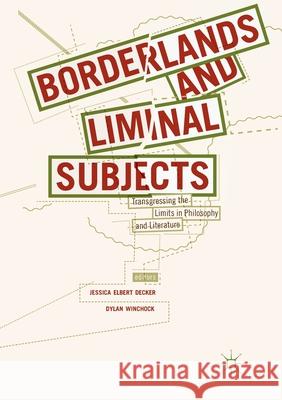Borderlands and Liminal Subjects: Transgressing the Limits in Philosophy and Literature » książka
topmenu
Borderlands and Liminal Subjects: Transgressing the Limits in Philosophy and Literature
ISBN-13: 9783319884929 / Angielski / Miękka / 2018 / 281 str.
Kategorie BISAC:
Wydawca:
Palgrave MacMillan
Język:
Angielski
ISBN-13:
9783319884929
Rok wydania:
2018
Wydanie:
Softcover Repri
Ilość stron:
281
Waga:
0.35 kg
Wymiary:
21.01 x 14.81 x 1.57
Oprawa:
Miękka
Wolumenów:
01
Dodatkowe informacje:
Wydanie ilustrowane











